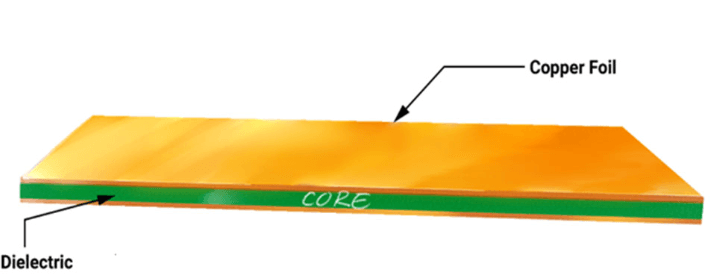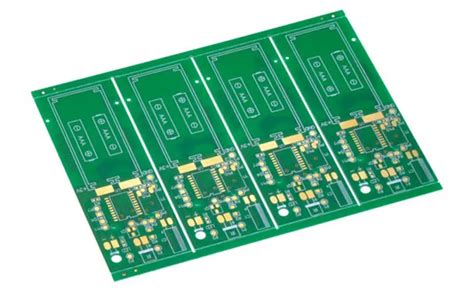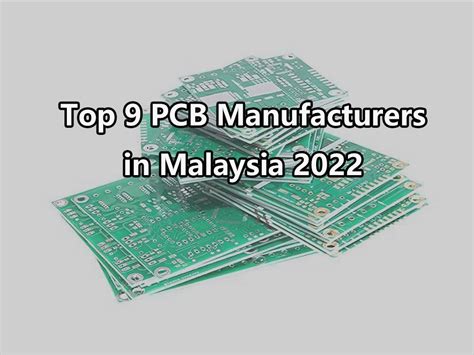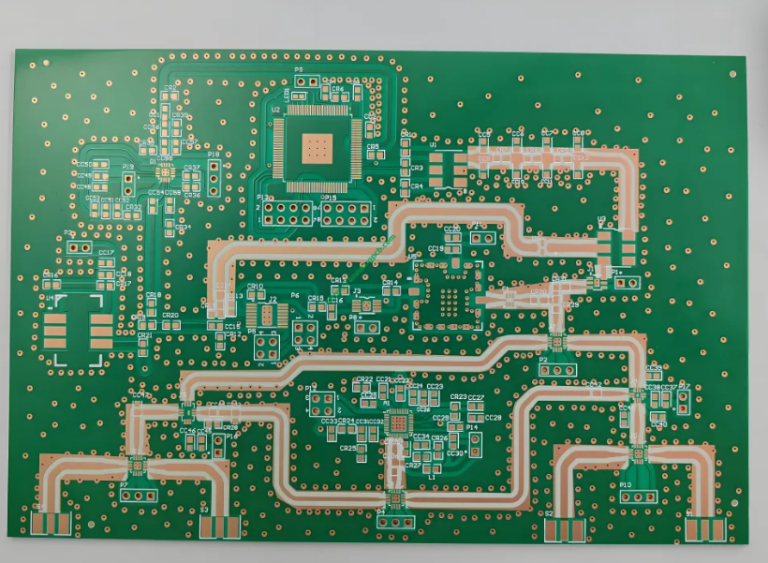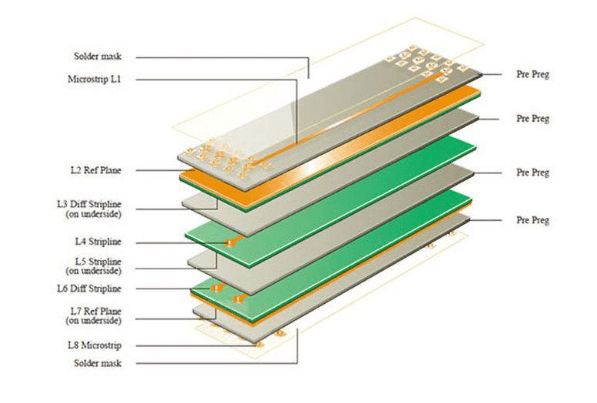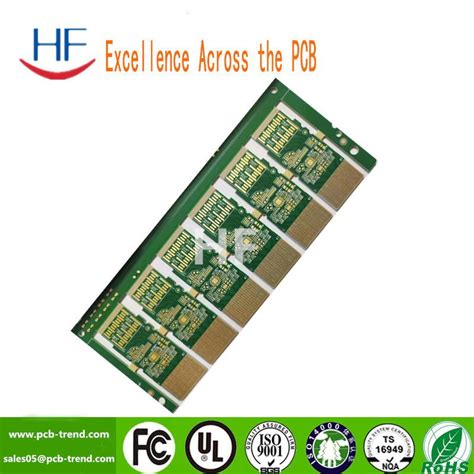Best Practices for IPC Class 3 PCB Manufacturing in Critical Applications
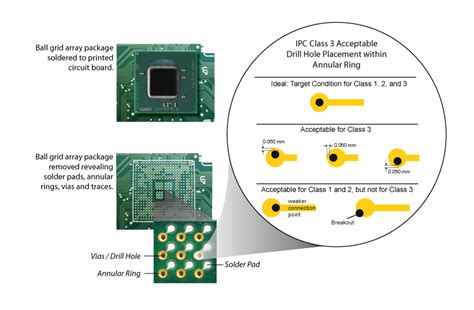
Key Takeaways
When engaging in IPC Class 3 PCB manufacturing, it’s crucial to understand that your boards will be used in mission-critical environments such as military, medical, and aerospace applications. For your pcb manufacturing company, implementing best practices will not only optimize pcb manufacturing costs but also ensure the highest reliability and performance standards are met. Consider the following key aspects:
Adherence to Standards: Ensure that your processes comply with IPC-6012 for the design and IPC-A-610 for assembly. These standards set the expectations for quality, which are crucial for Class 3 applications.
Material Selection: Select materials that enhance reliability such as high-grade substrates and appropriate soldering materials to withstand harsher conditions.
Design Considerations: Focus on critical design practices that promote durability, such as adequate spacing between traces and consideration of thermal management.
Testing Protocols: Implement rigorous testing protocols to assess function and durability throughout production.
Quality Assurance Processes: Your quality assurance should not just be a final check but should be integrated throughout the entire production process to catch potential issues early.
Utilizing these best practices will position your pcb manufacturing business as a reliable partner in meeting the stringent demands of critical applications while optimizing costs and ensuring top-tier performance. For specialized services, explore companies like Andwin PCB who excel in delivering high-quality PCBs for challenging environments.
| Aspect | Recommendation |
|---|---|
| Standards | Follow IPC-6012 and IPC-A-610 |
| Material Quality | Use high-grade substrates |
| Design Practices | Maintain critical trace spacing |
| Testing Procedures | Incorporate thorough testing phases |
| Quality Assurance | Integrate throughout production |
By focusing on these areas, you can confidently address the unique challenges associated with IPC Class 3 PCB manufacturing in critical applications.
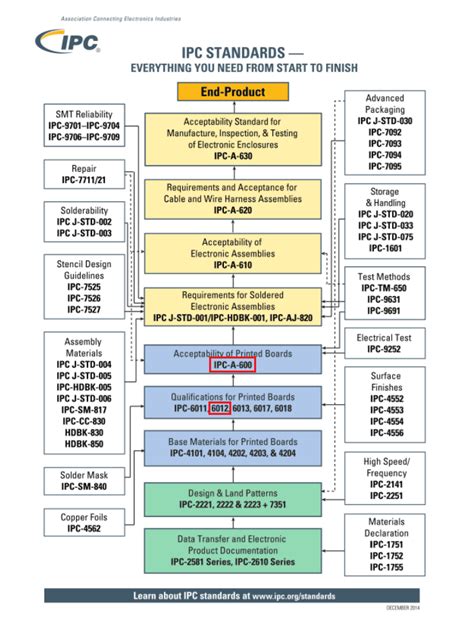
Introduction to IPC Class 3 PCBs and Their Importance in Critical Applications
In today’s technologically advanced world, you must recognize the significance of IPC Class 3 PCBs for applications in the military, medical, and aerospace industries. These sectors demand the highest standards of reliability and performance due to the critical nature of their operations. Choosing pcb manufacturing processes that adhere to stringent guidelines ensures that your products meet the rigorous expectations of these high-stakes environments. Understanding the implications of pcb manufacturing companies that specialize in Class 3 standards can make a substantial difference in the safety and efficacy of your electronic components. It is also crucial to be aware of the pcb manufacturing cost, which can vary significantly based on materials, complexity, and production lifespan. By investing wisely in a reputable pcb manufacturing business, you lay down a foundation that prioritizes quality assurance, precise engineering, and compliance with IPC standards. This investment is not merely a financial decision; it is an essential aspect of fostering reliability and advancing technological innovation in sectors where failure is not an option.
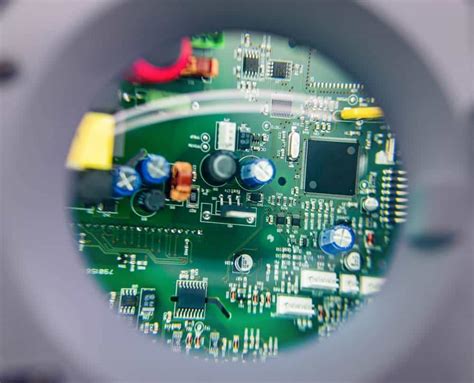
Overview of IPC Standards: IPC-6012 and IPC-A-610
In the realm of pcb manufacturing, adherence to the IPC-6012 and IPC-A-610 standards is crucial, particularly when dealing with Class 3 PCBs intended for critical applications. These standards serve as essential guidelines that ensure not only the integrity and reliability of the boards but also their ability to perform in demanding environments, such as those found in military, medical, and aerospace sectors. The IPC-6012 standard focuses on the qualifications of printed circuit boards, outlining the necessary criteria for materials, construction methods, and testing requirements. On the other hand, IPC-A-610 provides quality acceptance criteria for electronic assemblies, detailing what constitutes an acceptable solder joint, component placement, and overall PCB appearance.
By familiarizing yourself with these standards, you can enhance your understanding of what makes a reliable PCB circuit. Engaging with experienced pcb manufacturing companies that emphasize these guidelines can further streamline your production process while minimizing potential issues during assembly. It’s also imperative to consider how pcb manufacturing cost can be influenced by compliance with these rigorous standards; investing in high-quality materials and superior craftsmanship may lead to higher upfront costs but results in lower failure rates down the line.
In your pcb manufacturing business, ensuring that you meet or exceed IPC standards not only boosts product reliability but also enhances your reputation among clients who rely on performance-critical applications. As you navigate the complex world of Class 3 PCB manufacturing, remember that aligning your practices with IPC-6012 and IPC-A-610 can be a decisive factor in achieving success in a competitive market landscape.
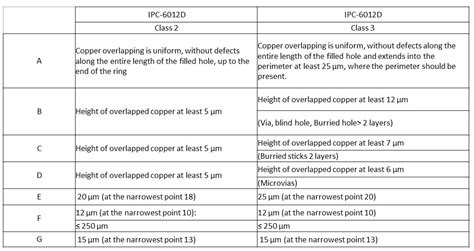
Key Design Considerations for Class 3 PCB Manufacturing
When engaging in pcb manufacturing for Class 3 applications, it is crucial to prioritize design aspects that directly impact reliability and performance. One of the primary considerations is ensuring that the design accommodates the specific environmental conditions expected in critical applications, such as those found in military or aerospace settings. Utilizing appropriate materials plays a significant role; consider selecting substrates with low thermal expansion coefficients and high dielectric strength to withstand the rigors of operation. Additionally, pay meticulous attention to the routing of traces—properly sized and spaced traces will help in minimizing resistance and ensuring optimal current flow.
Implementing redundancy measures can also enhance reliability; integrate additional pathways that can take over if one pathway fails. Furthermore, collaborating with reputable pcb manufacturing companies can significantly contribute to achieving high-quality output at a competitive pcb manufacturing cost. These companies often have specialized knowledge and resources that can refine your design process, address challenges effectively, and ensure adherence to stringent IPC standards.
“Investing in robust design at the outset can save significant costs down the line by reducing instances of failure and increasing customer satisfaction.”
Always document your considerations thoroughly during the design phase; this not only aids in maintaining stringent quality assurance but also streamlines communication across teams involved in pcb manufacturing business. Ultimately, a well-thought-out design ensures compliance with IPC standards and elevates the overall performance of Class 3 PCBs, paving the way for their successful deployment in critical applications.
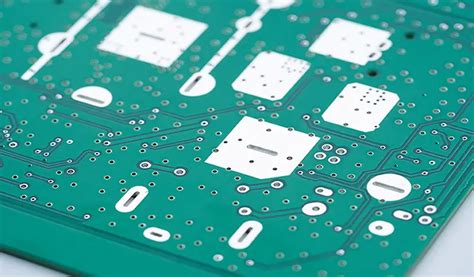
Material Selection for Enhanced Reliability in Class 3 PCBs
When it comes to pcb manufacturing, selecting the right materials is crucial for ensuring the durability and functionality of Class 3 PCBs — especially in critical applications found in military, medical, and aerospace industries. The materials used must exhibit excellent thermal stability, minimal thermal expansion, and high mechanical strength to withstand demanding operational environments. For instance, using high-frequency laminates can significantly improve performance in signal integrity applications, while advanced resin systems can enhance moisture resistance. Additionally, it is essential to collaborate with reputable pcb manufacturing companies that understand the unique requirements of Class 3 standards and can provide materials that meet stringent IPC specifications. Keep in mind that while quality materials may contribute to a higher pcb manufacturing cost, the investment will pay off greatly in terms of reliability and performance. As you engage with different suppliers, you should also evaluate their capabilities concerning material testing and assurance processes to ensure they align with your needs. Ultimately, making informed choices at the initial stages of your pcb manufacturing business can lead to substantial long-term advantages, reinforcing the reliability required for critical applications.
Best Practices for Assembly and Production of Class 3 Boards
When it comes to PCB manufacturing for Class 3 boards, particularly in high-stakes environments like military, medical, and aerospace sectors, adhering to best practices is paramount. One of the crucial aspects is ensuring that all PCB manufacturing companies are aware of the stringent standards required for this classification. You should emphasize the importance of thorough inspections and meticulous assembly processes. Utilizing advanced technologies and automation can significantly enhance the consistency and reliability of your products. Selecting high-quality materials tailored for durability in demanding applications is also essential; this directly impacts the overall PCB manufacturing cost and long-term performance of these boards.
In your operations, focus on a proactive approach to quality assurance by implementing rigorous testing protocols at each stage of production. This could involve methods such as thermal cycling tests or environmental stress tests to ensure that your boards can withstand extreme conditions. Additionally, maintaining clear communication with your suppliers about material specifications is vital to mitigate risks associated with sourcing decisions in the PCB manufacturing business. By integrating these practices, you not only elevate product quality but also enhance customer trust and satisfaction in critical applications.
Testing and Quality Assurance Procedures for Class 3 PCBs
When it comes to pcb manufacturing, especially for IPC Class 3 boards used in critical applications, testing and quality assurance procedures are paramount. You must implement rigorous testing protocols to verify the integrity and functionality of your PCBs under various conditions. This includes environmental tests that simulate extreme temperatures, humidity levels, and mechanical stresses often encountered in military, medical, and aerospace applications. Additionally, optical inspection methods such as Automated Optical Inspection (AOI) can help ensure that your designs meet the specifications laid out in IPC standards like IPC-6012 and IPC-A-610.
Moreover, collaborating with recognized pcb manufacturing companies that emphasize quality will enable you to adhere to stringent practices throughout production. These companies typically engage in detailed first-article inspections, where the initial prototype is thoroughly examined against your design requirements before mass production begins. It’s crucial to understand that while the pcb manufacturing cost may be higher for Class 3 products due to these extensive testing measures, the investment is essential for ensuring reliability and long-term performance.
Incorporating failure analysis into your testing regimen allows you to identify potential issues before they escalate, ultimately saving costs associated with defects later down the line. Thus, nurturing a strong quality assurance framework not only enhances product reliability but also elevates your pcb manufacturing business, positioning you as a trusted provider in an industry where safety and performance are non-negotiable.
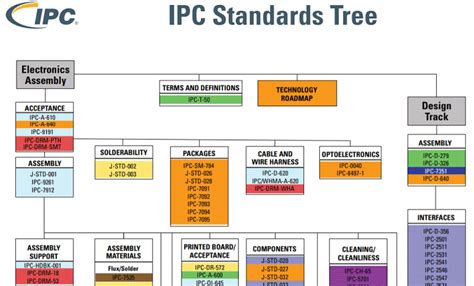
Addressing Challenges in Manufacturing Class 3 PCBs
When it comes to pcb manufacturing for Class 3 applications, you face a unique set of challenges that demand specialized attention. The complexity of technologies used in military, medical, and aerospace industries necessitates a meticulous approach. First, pcb manufacturing companies often grapple with ensuring compliance with IPC standards which demand high reliability and durability. This can escalate the pcb manufacturing cost significantly if proper planning isn’t executed. Your focus should be on adopting advanced techniques to mitigate potential risks and maintain the integrity of the boards throughout their lifecycle. Leveraging superior materials is vital; for instance, base materials with enhanced thermal characteristics can aid in minimizing failures during operation. Moreover, establishing a close relationship with your pcb manufacturing business partners allows for better communication and problem-solving capabilities during the production phase. By proactively addressing these challenges, you can ensure that your Class 3 PCBs not only meet but exceed performance expectations in critical applications.
Conclusion: Ensuring Reliability and Performance in Critical Applications
In the realm of pcb manufacturing, ensuring reliability and performance is paramount, especially in industries where failure is not an option, such as military, medical, and aerospace sectors. It is crucial for you to adhere to the IPC Class 3 standards which dictate the highest level of reliability. When working with pcb manufacturing companies, you will want to evaluate their adherence to IPC standards as this reflects on the quality of their output. Investing in advanced pcb manufacturing processes can often lead to higher initial pcb manufacturing costs, but this investment pays off by significantly reducing risks associated with failures. Your approach should involve a careful selection of materials and components that not only comply with IPC guidelines but also enhance overall durability and efficiency. As you navigate the pcb manufacturing business, keeping a close eye on testing and quality assurance procedures will ensure that each board meets stringent requirements. By focusing on best practices throughout the design, assembly, and testing phases, you can achieve optimal performance while minimizing potential disruptions in critical applications.
Conclusion: Ensuring Reliability and Performance in Critical Applications
In the realm of PCB manufacturing, especially for IPC Class 3 standards, your focus should be on achieving the highest levels of reliability and performance. This is crucial in demanding sectors such as military, medical, and aerospace industries where failure is not an option. To ensure success, it is essential to collaborate with reputable pcb manufacturing companies that understand the intricacies involved in fabricating high-quality boards. These organizations typically employ stringent testing and quality assurance procedures that adhere to IPC standards, minimizing risks associated with defects. Furthermore, understanding the pcb manufacturing cost can help you make informed decisions about materials and processes that provide the best balance between quality and expense—after all, investing wisely in your pcb manufacturing business will lead to dividends in performance and longevity. By prioritizing these aspects, you not only enhance your products but also build a reputation for reliability that can set you apart in a competitive marketplace.
FAQs
What does IPC Class 3 mean for PCB manufacturing?
IPC Class 3 refers to the highest quality standards established for PCB manufacturing used in critical applications, such as military, medical, and aerospace sectors. This classification emphasizes the need for high reliability, ensuring that the boards can perform consistently under rigorous conditions.
What are some key factors to consider in PCB manufacturing companies?
When selecting PCB manufacturing companies, consider their compliance with industry standards, their expertise in material selection, and their ability to incorporate best practices in assembly and production. It’s also essential to assess their testing protocols and quality assurance measures to ensure the reliability of the PCBs.
How does material selection impact PCB manufacturing costs?
The choice of materials is crucial as it directly affects the PCB manufacturing cost. High-quality materials often lead to better performance and longevity but may result in higher upfront costs. Balancing these costs with the required specifications is vital for achieving optimal results.
What challenges do businesses face in PCB manufacturing?
In the PCB manufacturing business, challenges can include maintaining consistency in production, adapting to evolving technology, and meeting demanding customer requirements. Addressing these challenges through rigorous testing and compliance with standards like IPC-6012 can significantly enhance product reliability.


